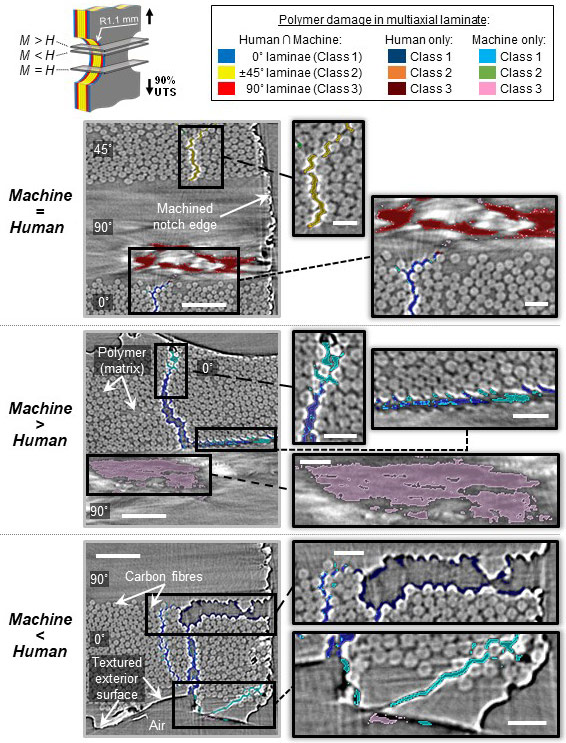A recently-published collaboration between researchers in necstlab and the Robust Robotics Group was highlighted by the European Synchrotron (ESRF), where they “describe how they trained a machine learning system (specifically a deep learning (DL) artificial intelligence (AI) model) based on a convolutional neural network (CNN) to identify regions of damage induced in aerospace-grade carbon-fibre composites within a tomography dataset. Such a CNN machine has potential to accelerate discovery within new datasets and it almost eliminated the time-consuming human effort typically associated with segmentation of the data.
Reed Kopp, first author on the paper, explained, ‘For each 3D scan, what we used to do in 10 hours we can now do in 1 hour, and without human intervention. For example, for the 30 scans captured as part of a multi-day beamtime mission, it takes 60 working days for a human vs 2 days for a computer to deal with the data.’”
In addition to Kopp, paper authors include Joshua Joseph, Xinchen Ni, Nick Roy, and Brian Wardle. Read the full paper published in Advanced Materials.


